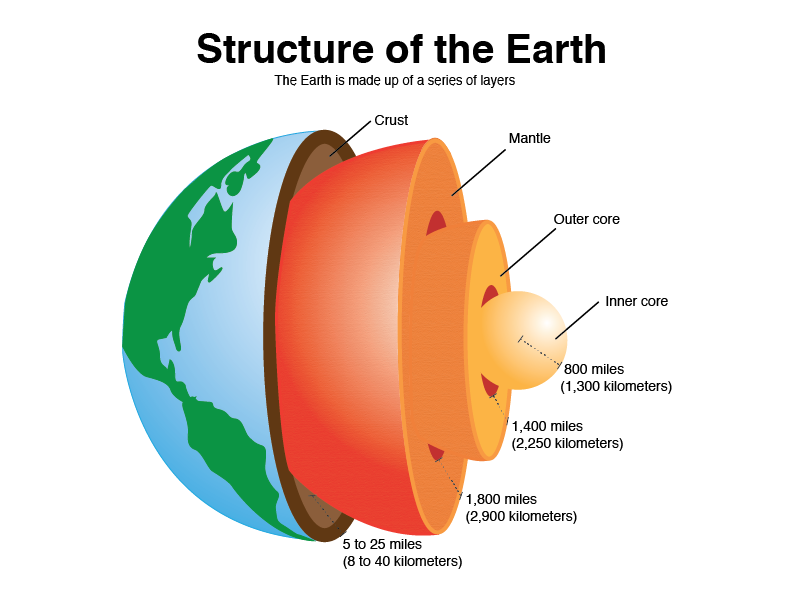What is Geothermal Energy?
The word geothermal comes from the Greek words geo (earth) and therme (heat).
Geothermal energy is heat within the earth. This heat can be used as steam or as hot water to
heat buildings or to generate electricity.
GEOTHERMAL ENERGY IS A RENEWABLE ENERGY SOURCE BECAUSE HEAT IS CONTINUOUSLY PRODUCED INSIDE THE EARTH.
Geothermal energy comes from deep inside the earth
The slow decay of radioactive particles in the earth’s core, a process that happens in all rocks, produces geothermal energy. The earth’s core is hotter than the sun’s surface. The earth has a number of different layers:
The earth's crust is broken into pieces called tectonic plates.
Magma comes close to the earth's surface near the edges of these plates, which is where many volcanoes occur. The lava that erupts from volcanoes is partly magma. Rocks and water absorb heat from magma deep underground. The rocks and water found deeper underground have the highest temperatures.
People around the world use geothermal energy to heat their homes and to produce electricity by drilling deep wells and pumping the hot underground water or steam to the surface. People can also use the stable temperatures near the surface of the earth to heat and cool buildings.
Geothermal reservoirs are naturally occurring areas of hydrothermal resources. These reservoirs are deep underground and are largely undetectable above ground. Geothermal energy finds its way to the earth’s surface in three ways:
UNDERSTANDING GEOTHERMAL ENERGY SOURCES
Tapping into Geothermal Energy Sources
The most active geothermal resources are usually found along major tectonic plate boundaries where most volcanoes are located. One of the most active geothermal areas in the world is called the Ring of Fire, which encircles the Pacific Ocean.
When magma comes near the earth's surface, it heats ground water trapped in porous rock or water running along fractured rock surfaces and faults. Hydrothermal features have two common ingredients, water (hydro) and heat (thermal).
Geologists use various methods to find geothermal reservoirs. Drilling a well and testing the temperature deep underground is the most reliable method for locating a geothermal reservoir.
ESIA: Non-Technical Summary
Non-Technical Summary (NTS) provides an overview, in plain language, of the main findings of the Environmental and Social Impact Assessment (ESIA)
- Version 2.0
- 3448 downloads

